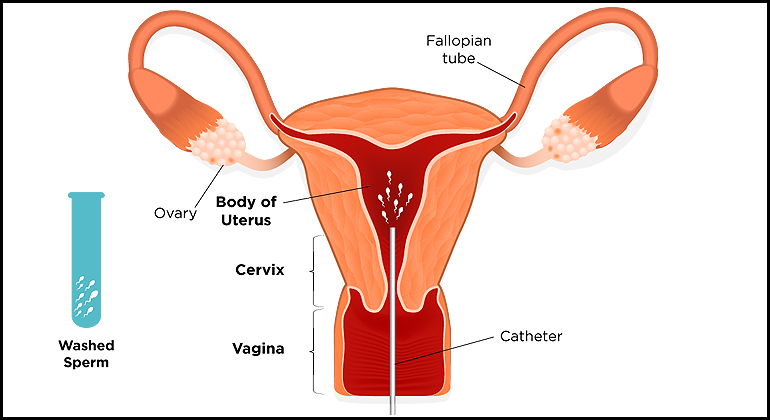
Intrauterine insemination (IUI) is a fertility treatment that involves placing sperm inside a woman’s uterus to facilitate fertilization. The goal of IUI is to increase the number of sperm that reach the fallopian tubes and subsequently increase the chance of fertilization.
IUI provides the sperm an advantage by giving it a head start, but still requires a sperm to reach and fertilize the egg on its own. It is a less invasive and less expensive option compared to in vitro fertilization.
The most common reasons for IUI are a low sperm count or decreased sperm mobility.
However, IUI may be selected as a fertility treatment for any of the following conditions as well:
The most common reasons for IUI are a low sperm count or decreased sperm mobility.
However, IUI may be selected as a fertility treatment for any of the following conditions as well:
- Unexplained infertility
- A hostile cervical condition, including cervical mucus problems
- Cervical scar tissue from past procedures which may hinder the sperms’ ability to enter the uterus
- Ejaculation dysfunction
